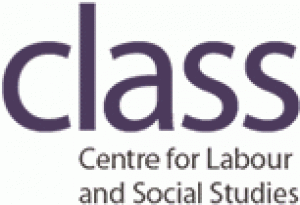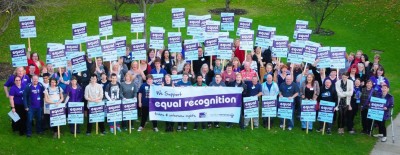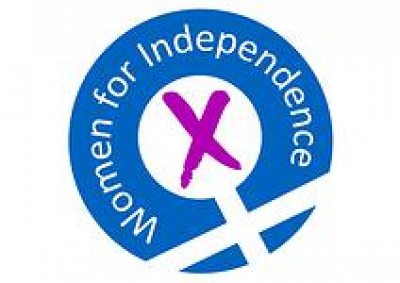Engender blog
Guest Post: Women at the heart of decision making: How women’s goals and ambitions can shape and create better public policy
by Lynn Williams, SCVO. Lynn is also an unpaid carer.
I left university some 20 years ago (how did that happen?!) with real fire in my belly, angry at the injustice of poverty and how those in poverty were treated.
That passion for social change was never lost but was rekindled when I became part of the carers’ movement, which fights for support that should be readily available to help carers and their loved ones achieve the quality of life so many of us take for granted.
As an unpaid carer for my husband, that fight has affected our own, small family unit. Battling burgeoning bureaucracy in public services is a daily part of our lives. In those battles, carers talk about losing themselves and of having to give up on their own dreams and ambitions. For many, battling for appropriate care means leaving work and abandoning their career. I have seen this happen to fellow activists and it’s something which I fear.
I know what giving up work will mean – consider Carers Allowance which remains the lowest of income replacement benefits. It means being the target of the Coalition’s “slash and burn” policy agenda. It would mean being viewed in society as being something less. Politicians talk a good game. They say they value unpaid care –whether that be for children or family members. But watch Engender’s new video for the “Making Work Visible” campaign and see the reality. Paid work is still the prize in terms of economic policy – unpaid work remains unsupported and undervalued.

The Scottish Government estimates that by 2037, over one million of us will become carers. The impact of caring is borne disproportionately by women and it affects their place and value in the economy and within the labour market. Carers UK tells us that 2 million people have quit work to care and almost 3 million have reduced their working hours. This increases dependence on the benefits system and on tax credits which are being cut significantly. Poverty is therefore a likely outcome for far too many unpaid carers.
Meanwhile, the TUC highlights the “lack of well paid jobs for women who don’t work full time”. Too many jobs do not offer the flexibility needed to continue to balance work and care. Take all of this into account and then consider the increasing number of sandwich carers – those who care for an elderly relative and a disabled spouse or child. Devaluing the care economy and not dealing directly with the increasingly unbearable pressures on carers is a recipe for disaster.
Our economy, all key public services and our society depend on unpaid care. Without it, they would fall apart. That will continue to be the case and it is beyond sad that inequality of employment, income, and opportunity remain part of the real story of caring. None of this will ever change unless we look at policy creation which recognises the increasing complexity of our lives. We need politicians to take the lead – it is not enough to have our first female First Minister when the debate about care does not extend to the bureaucracy and unresponsive nature of public services such as social care. The lack of serious debate about these issues acts as a barrier which prevents women from achieving their own goals and ambitions.

And it is these very dreams and ambitions - the experience of women – which could provide some direction and vision as we come face to face with very serious and complex policy challenges – tighter finances, public service reform and creation of social security policy in Scotland. In the words of Ruth Bader Ginsburgh: “Women belong in all places where decisions are being made….It shouldn’t be that women are the exception.”
She was referring to the justice system, but her wisdom extends beyond this. As we leave behind International Women’s Day, the real catalyst for change will come when there are genuine opportunities for women at the very centre of the policy making process. We can start with the planned Carers’ Bill, the Smith legislative clauses and implementation of the refreshed Economic Strategy. We have an enviable and once in a lifetime opportunity to act and be the change that is so desperately needed.
Guest Post: Plan F for feminist: An alternative to the UK government's economic 'Plan A'.
 Guest blog: By Angela O'Hagan.
Guest blog: By Angela O'Hagan.
As Frances O’Grady argues in the foreword to the CLASS publication “Election 2015: What’s at stake for work, pay and unions?” the forthcoming election is “a chance to reject a broken economic system”. That encapsulates the arguments from a feminist economics and feminist political analysis of the current economic system and the policy responses of the UK government that are increasingly harmful to women’s wellbeing and their economic and social autonomy.
Guest Post: Trans and intersex equality voice grows louder as largest conference in Scotland is held
By James Morton

From Friday 31 Oct to Sunday 2 Nov, Scotland held its largest transgender and intersex equality conference with over 250 people participating. The Trans and Intersex Conference of the Isles took place in Edinburgh and was organised by the Scottish Transgender Alliance and Equality Network thanks to funding from VisitScotland, the Scottish Government and the University of Edinburgh.
Guest Blog: Intersectionality

In this week's guest blog post Richa Okhandiar writes about her experience of intersectionality in Scotland.
When I first came across the concept of intersectionality – it blew my mind.
I became actively interested in feminism around the age of 15 through being influenced by my older sister, discovering riot grrl and kickass role models in music and art who challenged gender norms a la Kathleen Hanna, Brody Dalle, and Carrie Brownstein. It was a complete age of discovery – I loved that there was this movement that accepted women as people who could be talented, thoughtful, screw-ups and genuine bad asses. Feminism and I just clicked, we were meant to be, it was fated.
There was always one drawback for me – all of the feminist icons I would read about, see in music and be heralded as role models were pretty much always white. It was always a bummer that I never saw anyone that looked like me or that my experience as a women had to be drawn from the Western, middle class part of my identity rather than the second-generation Indian born person born and raised in the UK. Even when I went to university and continued my education into feminism it became evident that the vast majority of accessible mainstream writing was all from one perspective. So I'll say it again, when I first came across intersectionality – it blew my mind!
Guest blog: Women for Independence (Indyref Thursday #8)
 This week's final indyref Thursday is a double page special from two former politicians who have been out on the campaign trail. They describe what they believe their vote will mean for women.
This week's final indyref Thursday is a double page special from two former politicians who have been out on the campaign trail. They describe what they believe their vote will mean for women.
Carolyn Leckie is a former Scottish Socialist Party MSP for Central Scotland.
When I was in the Parliament I got into trouble. For weeks I’d been trying to ask Jack McConnell about the nursery nurses. Nursery nurses who, as women, were deeply skilled but disgracefully paid and striking for better. I’d managed to secure a member’s debate but despite repeated attempts, I was not allowed to ask Jack if he supported them. So, I made a point of order and was overruled. So I stayed standing for the nursery nurses who were thronging the Royal Mile in their hundreds outside. I was chucked out. But I was glad to join the women outside, who were protesting at a parliament that had no control of employment law, equalities, wages or trade union legislation.
Downloads
 Engender Briefing: Pension Credit Entitlement Changes
From 15 May 2019, new changes will be introduced which will require couples where one partner has reached state pension age and one has not (‘mixed age couples’) to claim universal credit (UC) instead of Pension Credit.
Engender Briefing: Pension Credit Entitlement Changes
From 15 May 2019, new changes will be introduced which will require couples where one partner has reached state pension age and one has not (‘mixed age couples’) to claim universal credit (UC) instead of Pension Credit.
 Engender Parliamentary Briefing: Condemnation of Misogyny, Racism, Harassment and Sexism
Engender welcomes this Scottish Parliament Debate on Condemnation of Misogyny, Racism, Harassment and Sexism and the opportunity to raise awareness of the ways in which women in Scotland’s inequality contributes to gender-based violence.
Engender Parliamentary Briefing: Condemnation of Misogyny, Racism, Harassment and Sexism
Engender welcomes this Scottish Parliament Debate on Condemnation of Misogyny, Racism, Harassment and Sexism and the opportunity to raise awareness of the ways in which women in Scotland’s inequality contributes to gender-based violence.
 Gender Matters in Social Security: Individual Payments of Universal Credit
A paper calling on the Scottish Government to automatically split payments of Universal Credit between couples, once this power is devolved to the Scottish Parliament.
Gender Matters in Social Security: Individual Payments of Universal Credit
A paper calling on the Scottish Government to automatically split payments of Universal Credit between couples, once this power is devolved to the Scottish Parliament.
 Gender Matters Manifesto: Twenty for 2016
This manifesto sets out measures that, with political will, can be taken over the next parliamentary term in pursuit of these goals.
Gender Matters Manifesto: Twenty for 2016
This manifesto sets out measures that, with political will, can be taken over the next parliamentary term in pursuit of these goals.
 Scottish NGO Briefing for UN Special Rapporteur on Violence Against Women
Joint briefing paper for the UN Rapporteur on Violence Against Women.
Scottish NGO Briefing for UN Special Rapporteur on Violence Against Women
Joint briefing paper for the UN Rapporteur on Violence Against Women.

Newsletter
Sign up to receive our newsletter here:
Sign up to our mailing list
Receive key feminist updates direct to your inbox:
